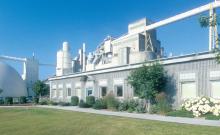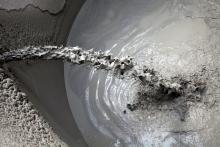
Spread over 49 acres, the solar power plant in the eastern Indian state of Odisha is set to generate 25.52 MU/PA, which will be utilised for the energy requirements of Dalmia's Kapilas Cement Manufacturing Works (KCMW).
Dalmia Cement says the expansion of solar capacity to 17.1MW (from the previous 2.4MW) furthers its sustainability goal of becoming carbon negative by 2040, and will enhance the plant’s energy efficiencies. The 17.1 MW plant aims to reduce the KCMW Cuttack plant’s day-time power requirement dependency on fossil fuels by over 40% and replace it with a clean, emissions-free, and renewable energy source.
“As one of India’s leading cement companies, we remain committed to responsible environmental stewardship by providing green building solutions and embedding sustainable mechanisms within our organisational value chain,” said Ganesh Jirkuntwar, national manufacturing head of Dalmia Cement. “We see the solar power plant expansion at our KCMW plant in Cuttack as providing the right impetus for our endeavours to continually adopt the cleanest and most economical fuel. We are confident that this move will help bolster DCBL’s sustainability target of RE100 by 2030 as we march towards taking our overall installed cement capacity to 110-130 million tonnes by 2031.”
The project was completed in two and a half months and Dalmia says it will reduce conventional power consumption by 27%. It adds that power consumption from the solar plant will ensure seamless production at the KCW, Cuttack plant, especially during emergencies such as preventive maintenance or breakdowns.
Bhavesh Wala, plant head at Dalmia Cement, KCMW (Cuttack), commented: “By shifting to solar power and other renewable energy sources at our facility, we are progressively reducing our overall carbon footprint while meeting our sustainability commitments and heading towards RE100 by 2030. This will also enable us to meet our capacity expansion plans over the years for which we see a balanced energy mix as a key advantage.”
As part of its Clean and Green is profitable and sustainable business phillosophy, Dalmia Bharat says it has reduced its carbon footprint by 22% in the last decade while growing three times to double its profitability. The company has one of the lowest carbon footprints globally and is committed to becoming carbon negative by 2040.








